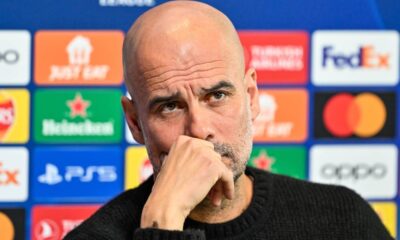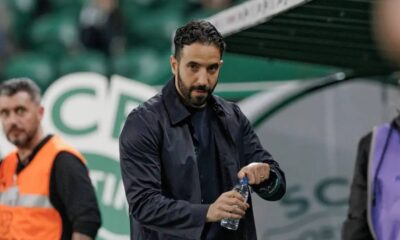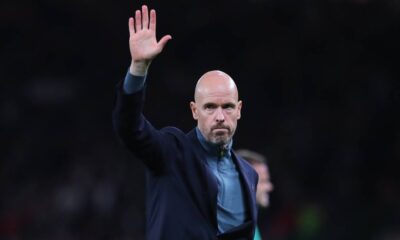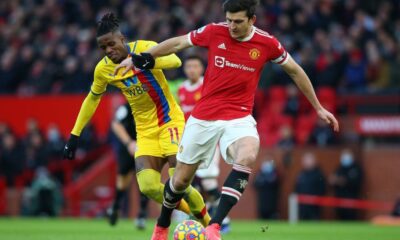Champions League
The season in which José Mourinho became a legend. How was Porto’s sensational Champions League triumph in 2004 born?
For some, it is synonymous with victory. A lot of people see him as an arrogant coach. There are also voices that his abilities are often overestimated. But what the native of Setúbal, Portugal, managed to do on 26 May 2004, no one has managed to emulate to this day.
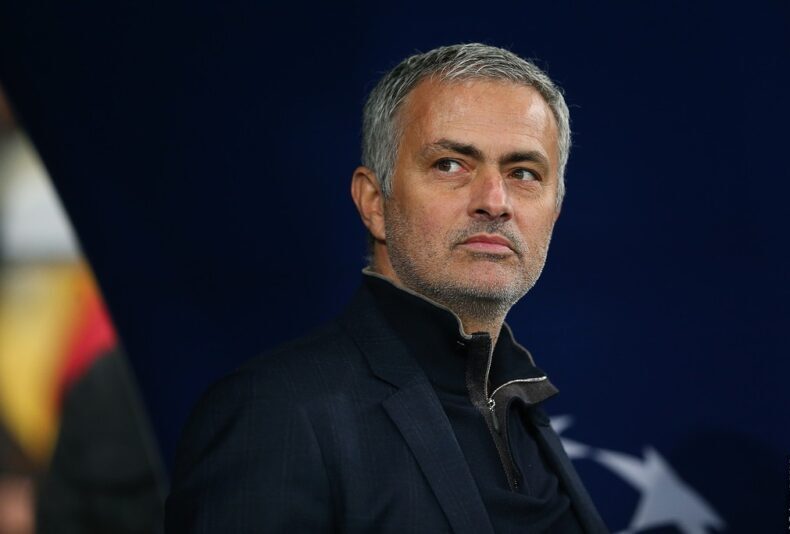
For some, it is synonymous with victory. A lot of people see him as an arrogant coach. There are also voices that his abilities are often overestimated. But what the native of Setúbal, Portugal, managed to do on 26 May 2004, no one has managed to emulate to this day.
For José, football has always been a religion. He was connected to the game from the very first moment. His father, Félix Mourinho, was a professional football goalkeeper and later a coach. José wanted to become a professional footballer. But in his words, he wasn’t good enough. He didn’t have the playing talent, but he felt from the first moment that he was well qualified to become a coach.
Mourinho took over FC Porto on 23 January 2002 after coach Octávio Machado was sacked after 36 games. Little did anyone know what kind of story he would begin to write. Porto was in a very difficult situation. It was experiencing its worst results in 20 years and the fans started to distance themselves from the club.
It is the club’s connection with the fans and the identity of the city that Mourinho sees as key. The north of Portugal, where Porto is located, is an area of hard-working people. Mourinho needed to introduce the values that the region holds to the club. Those values were commitment and self-sacrifice.
When recruiting players, Mourinho’s management team focused primarily on the psychological profile of the player. He did not spend on big stars. He looked for diamonds in the rough among players in lower leagues and smaller clubs. The team was to be built on homegrown players who would have a strong relationship with Porto.
There was a great climate in the cabin. The story between players Vítor Baía and Jorge Costa is proof of that. Baía and Costa were two potential captains. Both players forced a significant role on the other, as they were convinced that he would perform the captaincy better. That speaks volumes about the character the team had
Mourinho’s team looked completely different to his predecessor’s team and the fans fell in love with their club again. The home stadium became an impregnable fortress for Porto. In two years in the Portuguese league, the Portuguese Cup, the UEFA Cup and the Champions League, they have not lost a single game here.
In the 2002/03 season, the team from the north of Portugal managed to win the treble, celebrating victories in the Portuguese Cup, the Portuguese League and the UEFA Cup. A year later, Porto celebrated success in the league again. But it was poised for something even bigger. Mourinho’s team was about to reach the Champions League semi-finals.
The Champions League miracle
Porto were admittedly the best team in Portugal. But it was an outsider in European football. The whole team came together to watch the eight-final draw, which was taking place in Nyon, Switzerland.
At that time, Manchester United was considered the best team. Mourinho realised that if Porto got Manchester United, his players would be disappointed. So Jose tried to create an atmosphere where everyone would want the Red Devils.
He kept saying that he wanted them to be drawn to the strongest team on paper. He set the atmosphere in such a way that when Porto were actually drawn to United, the players jumped for joy.
Porto came out aggressively against their opponents. The players wanted to leave everything on the field. They were able to take the favourite from England by surprise, beating them 2-1 in Portugal. But they had a rematch at Old Trafford, which was no easy task. No Portuguese team had ever won on English soil in the knockout stages.
In the 25th minute, Manchester managed to score a goal to put the Portuguese visitors under pressure. But Manchester were afraid to make a mistake and looked more withdrawn. Porto countered this fear and began to attack.
Their activity earned them a free direct kick in the 90th minute, which was taken by McCarthy. He decided to shoot straight at Howard, who deflected the shot in front of him and the ball was headed into the net by Costinha. The outsider was able to celebrate a little anticipated advance.
Mourinho’s team managed to knock out France’s Lyon in the quarter-finals and Spain’s Deportivo La Coruña in the semi-finals. In the final, which took place on the aforementioned 26 May 2004 in Gelsenkirchen, Germany, Porto faced Monaco, which they managed to beat 3-0, celebrating a sensational Champions League triumph.
Porto’s surprising Champions League victory opened the door for the players and Mourinho to join the biggest clubs in the world. Mourinho was contacted by two English clubs on the same night he won the final. One of these clubs was Chelsea of London, to which he later moved and thus began to write the next chapter of his successful career.
Source: Daily Dose Of Football, The Playbook

